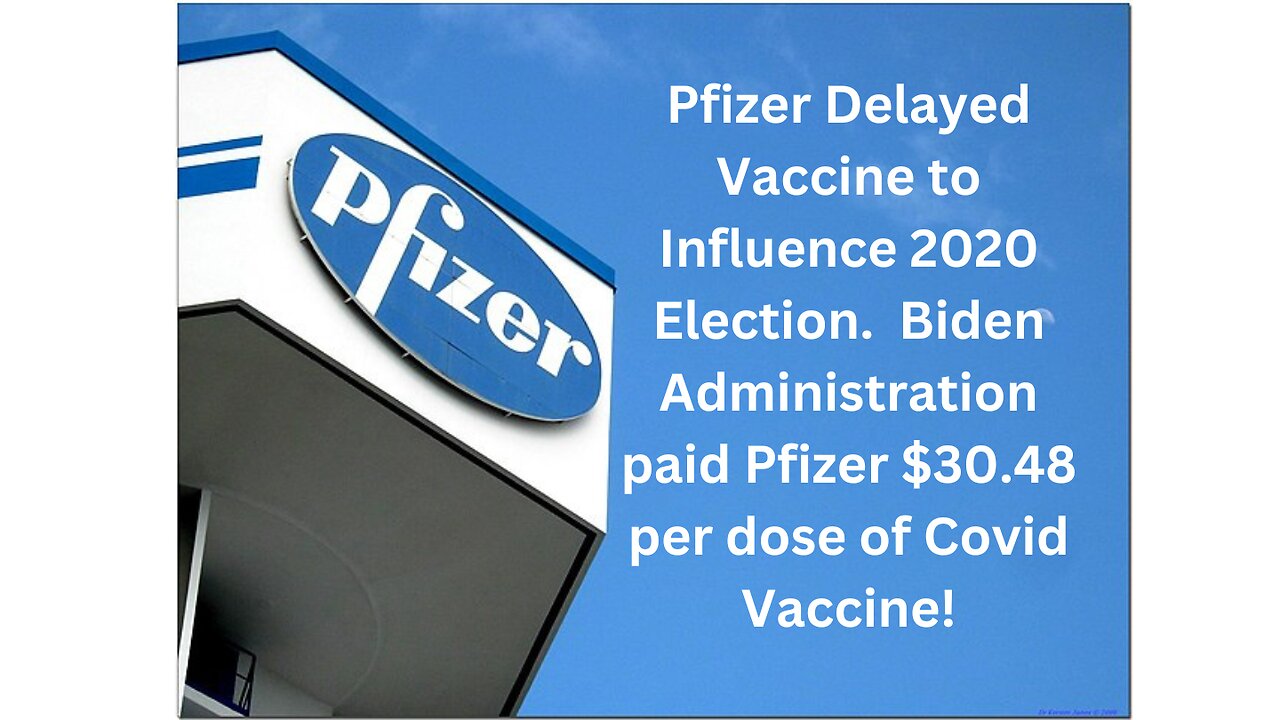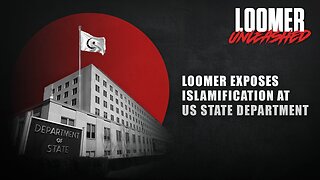Premium Only Content

Uncovered: Pfizer’s Role in Securing Biden’s 2020 Election Win
In a controversial move, pharmaceutical giant Pfizer allegedly delayed the release of its mRNA COVID-19 vaccine trial results until after the November 2020 election to prevent Donald Trump from gaining a significant political advantage. According to Jordan Schachtel, this strategic delay removed the possibility of an "October surprise" that could have bolstered Trump's reelection campaign, thus making it easier for Joe Biden to secure a victory.
Tony Fauci, in his new book, revealed that on November 7, after the absentee ballots were counted and Biden was declared the winner, Pfizer CEO Albert Bourla informed him about the positive trial results. This timing, Fauci noted, signaled a turning point in the fight against COVID-19 but conveniently came too late to impact the election outcome.
Schachtel criticized the mRNA shots as "junk genetic material," arguing that the delay had no real impact on public health but did effectively deny Trump a crucial political win. During the pandemic, the fear of COVID-19 led many voters to support the candidate they believed could best manage the crisis. Trump had hoped to showcase Operation Warp Speed's success before the election, but the delayed vaccine announcement likely influenced voters to choose Biden instead.
Fauci's book also recounts that Trump's FDA commissioner, Stephen Hahn, insisted that vaccine authorization would not be rushed for political gain. Interestingly, Hahn later joined Flagship Pioneering, the company that founded Moderna. This move raised further questions about the impartiality of vaccine approval processes.
Schachtel highlighted that Pfizer and Moderna benefited financially after Biden took office, with vaccine contract prices increasing significantly. Under Trump, Pfizer was to be paid $19.50 per dose, but the Biden administration later agreed to $30.48 per dose, leading to substantial profits for the companies during the pandemic.
Given these events, Schachtel suggests that Congress should focus on investigating the pharmaceutical companies for potential fraudulent activities rather than diverting attention to less relevant issues.
-
 1:48
1:48
Conspiracy Chronicle
8 months agoFaith Under Fire? Biden Administration Accused of Targeting Religious Schools
1201 -
 15:54
15:54
Lacey Mae ASMR
11 hours ago $0.68 earnedASMR For Sleep in 15 Minutes!
9.13K4 -
 3:16:38
3:16:38
Price of Reason
12 hours agoTrump FIRES Fed Governor Lisa Cook! Cracker Barrel CRISIS Continues! James Gunn DCU Woes! Gamescon!
111K7 -
 2:25:01
2:25:01
FreshandFit
6 hours agoTyreek Hill Pays Ex Wife $1 Million in Ongoing Fees From Divorce?!
34K3 -
 2:03:46
2:03:46
Inverted World Live
8 hours agoHaunted Dolls Hack Amazon Alexa | Ep. 98
106K2 -
 3:09:53
3:09:53
Laura Loomer
8 hours agoEP140: Loomer EXPOSES Islamification At US State Department
35.7K12 -
 3:05:00
3:05:00
TimcastIRL
9 hours agoTrump Floats Accepting 600,000 Chinese Student Visas, MAGA Uproar | Timcast IRL
213K159 -
 8:44:47
8:44:47
SpartakusLIVE
14 hours ago$20,000 Hide and Seek Tourney w/ Stonemountain64 || #1 Rat wins the BIG CHEESE
71K -
 2:34:02
2:34:02
Barry Cunningham
9 hours agoLISA COOK | ADAM SCHIFF | LETITIA JAMES | ARE THEY BEING SACRIFICED BY THE DEEP STATE?
104K65 -
 1:36:19
1:36:19
Flyover Conservatives
17 hours agoOnly 17% of Millennials Hit These 5 Adult Milestones—Why?; What If Childhood Trauma Is Behind Your Health Problems? - Dr. Troy Spurrill | FOC Show
41.4K4